Shibumi utilizes OpenAI’s GPT-4.1, a large language model, for its AI Support, AI Analyze AI Create Dashboard, AI Recommend Content, and AI Recommend Value features. Large language models like GPT-4.1 are pre-trained on extensive datasets to learn language characteristics, enabling them to perform tasks such as language understanding and generation. Shibumi does not train models on client data and uses GPT-4.1 in its standard form as provided by OpenAI for handling language-based tasks.
Shibumi AI is available Globally, enabling all AI data to be processed locally. For NA users we use OpenAI servers, for AP and EU we use Azure servers running OpenAI models.
For AI Support, the data provided is the Text Input (i.e., user entered questions) and the articles included on the Shibumi Online Support Site. No client program data is shared.
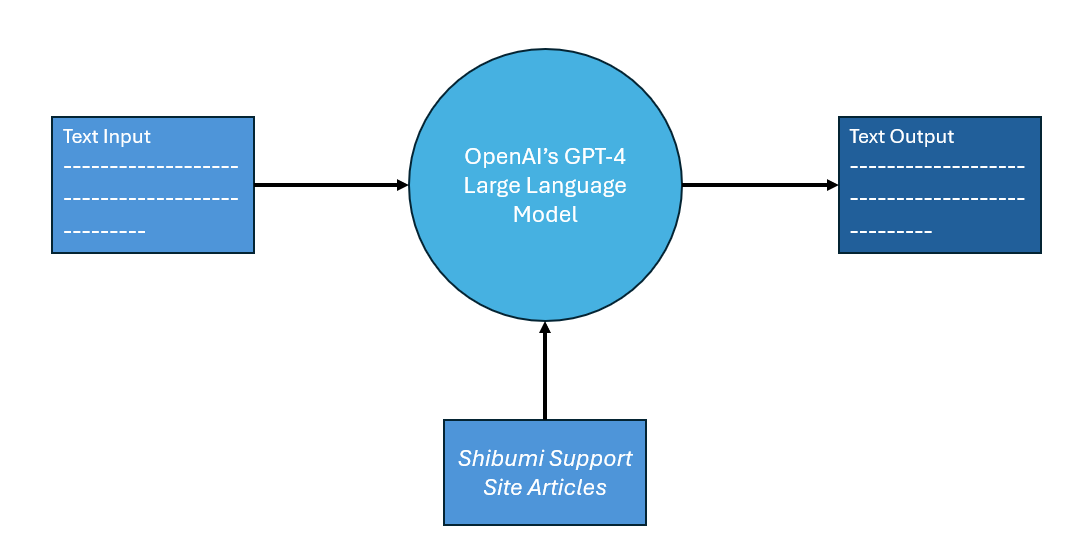
For AI Analyze, the data provided is the Text Input (i.e., user entered questions) and the pre-defined Shibumi Program work item Names and Score attribute values. No other program data is shared.
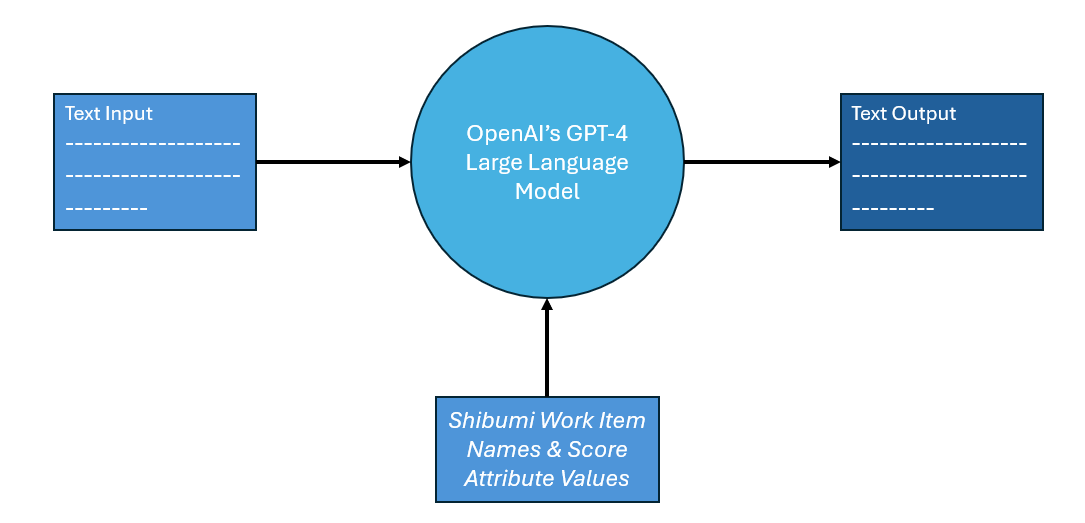
Note: AI Analyze is not available if the prerequisites are not satisfied (i.e., on a template named Initiative/Opportunity, the AI Score attributes must be defined). When the prerequisites are not satisfied, because AI Analyze is therefore not available, no Program data is shared.
For AI Create Dashboard, the data provided is the Text Input (i.e., user entered prompt) and the solution structure (e.g., template names and attributes). No program data is shared.
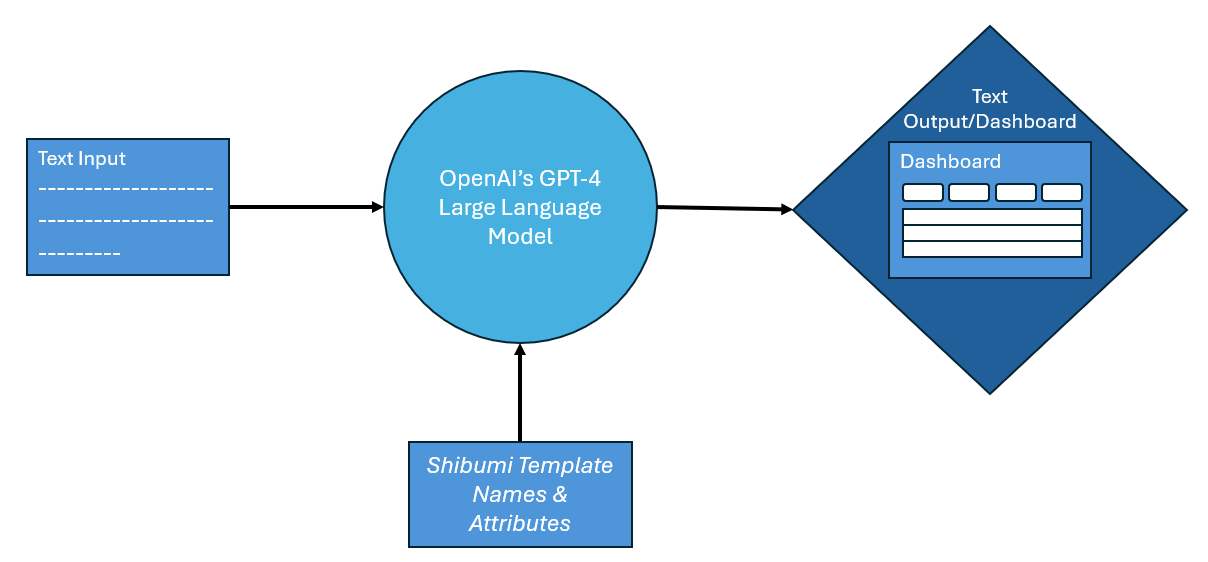
For AI Recommend Content, the data provided is the dynamically driven expression-based system prompt configured by the App Admin, this can include attribute references and their supporting definitions. The only program data shared is Work Item names.
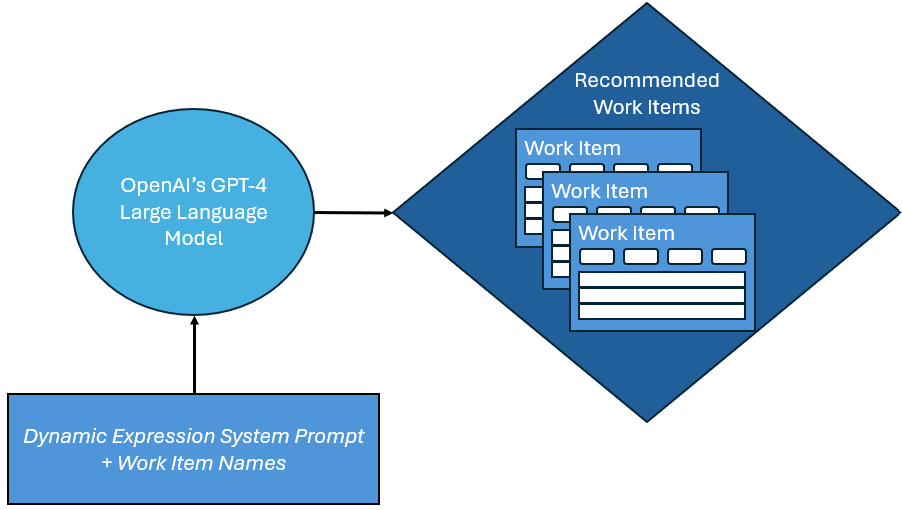
Note: AI Recommend Content is not available if the App Admin has not enabled AI Create on the Template type displayed in the Table section, as well as configuring the Attribute Definitions and System Prompt. When the configuration prerequisites are not satisfied, because AI Recommend Content is therefore not available, no Program data is shared.
For AI Recommend Value, the data provided is the dynamically driven expression-based system prompt configured by the App Admin, this includes child-template attribute references and their respective values. The only program data shared is attribute values from the current or child templates.
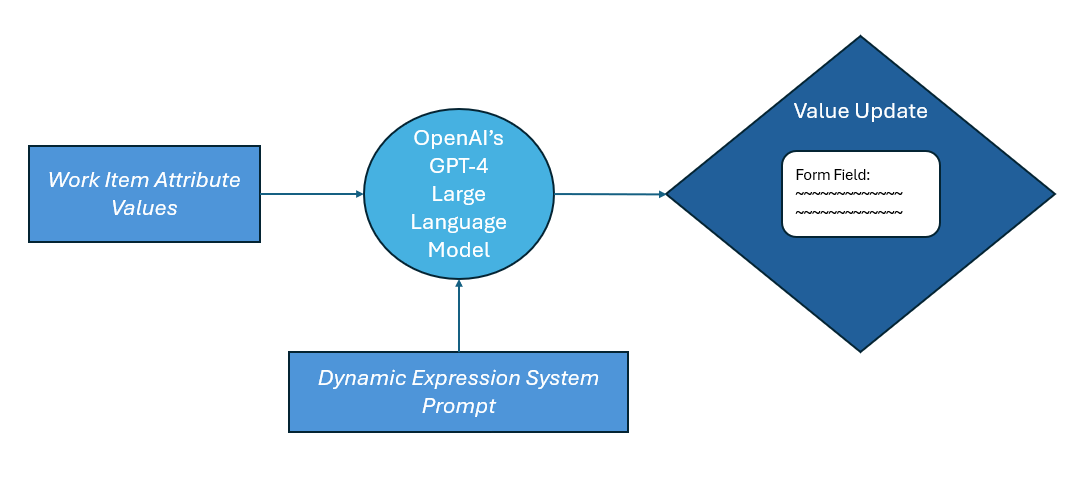
Note: AI Recommend Value is not available if the App Admin has not enabled AI Update Value on the Template which contains the designated attribute to update, as well as configuring the Attribute Definitions and System Prompt. When the configuration prerequisites are not satisfied, because AI Recommend Value is therefore not available, no Program data is shared.
